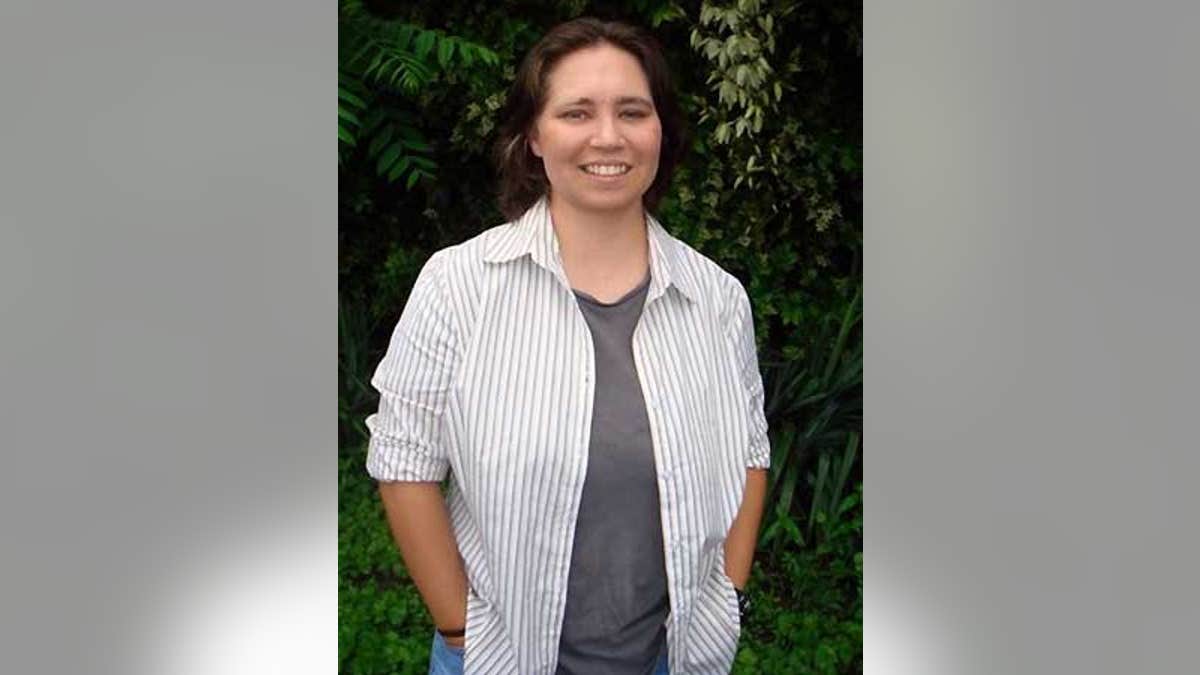
June 17: Former Army reservist and the face of the Abu Ghraib prisoner abuse scandal, is pictured in Keyser, W.Va. (AP)
WASHINGTON – Former Army reservist Lynndie England is suing the biographer who wrote the book she hoped would tell her side of the Abu Ghraib prison scandal and salvage her image.
England claims writer Gary S. Winkler has seized control of what was intended to be a shared copyright by abruptly resigning in July from A Few Bad Apples LLC, a West Virginia company set up to handle finances, and forming his own Virginia-based publishing company, Bad Apple Books LLC.
Winkler denies any wrongdoing and said he welcomes a Sept. 23 hearing in Hampshire County Circuit Court.
"The book is not selling well," said Winkler, of Fincastle, Va. "I think there's this impression I've been sitting on this cash. I wish it were true. ... Nobody's getting rich here. I'm in the hole."
It's unclear how many books have been sold, but Winkler said he's sold only about 20 through his Web site and perhaps a few hundred through other online retailers.
The book, released in June, is called "Tortured: Lynndie England, Abu Ghraib and the Photographs That Shocked the World." England, 26, of Fort Ashby, has said she hopes it will help people understand she had a limited role in the mistreatment of detainees at the Iraqi prison in 2004.
The photographs show her holding a restraint around a man's neck, and giving a thumbs-up and pointing at the genitals of naked, hooded men, a cigarette dangling from her mouth.
England, one of 11 soldiers found guilty of wrongdoing, is currently appealing convictions for conspiracy, mistreating detainees and committing an indecent act. While admitting she made some bad decisions, England has said it wasn't her place to question the "softening-up" treatments sanctioned long before she arrived.
England, whose complaint cites numerous conflicts with Winkler, also claims Winkler has refused to provide access to online accounts that she could use to monitor book sales and revenues.
Her longtime attorney-turned-agent Roy Hardy, meanwhile, claims in an affidavit that Winkler refused to list England as a co-author or let her deal directly with promoters.
Hardy contends Winkler conducted all book-related business from his home without keeping England informed, canceled book signings after she had made travel arrangements and made disparaging remarks about England to the press.
Winkler has countered that Hardy regularly interfered with their Los Angeles-based publicist and brokered separate deals for England. Things also "crashed and burned pretty fast" after the Library of Congress canceled England's scheduled August appearance, Winkler said. An employee who organized the event said he had received several e-mails threatening violence if England spoke.
Hardy, an assistant Hampshire County prosecutor and witness in the lawsuit, declined comment Wednesday.
Winkler said he shared a checking account with Hardy and England, and that he paid bills to the book cover designer and others while the pair carelessly withdrew money. He claims he set up the limited liability company to handle administrative issues and to protect himself.
Winkler said his relationship with England, Hardy and Hardy's wife, Christy, has been difficult from the start, when he signed on to what he believed would be an autobiography. But he said he took on a bigger role when England had trouble communicating.
"She's not a deep person unless you make her reflect on what was going on," Winkler said. "The only way to get anything out of her was to go up there and get into her home and sit down at her kitchen table. I had to hammer her. I sat with her for countless hours. I wanted people to see a human being."
